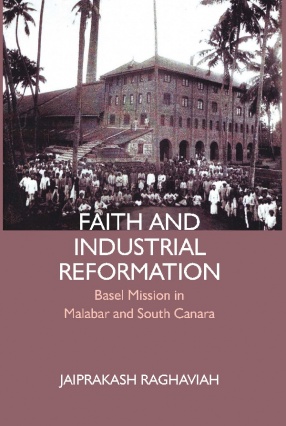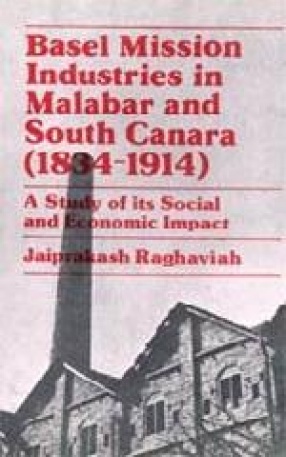The Basel Mission, a Swizz/German Protestant Christian missionary organization established in Basel, in Switzerland, started its work in India, in the districts of Malabar and South Canara of the erstwhile Madras Presidency from 1834. During the period ending up with the outbreak of the First World War in 1914, the Mission initiated a number of economic activities which eventually culminated in the establishment of large modern industries in the lines of modern handloom weaving and tile manufacture. These industries, established to give employment to the converts who had lost their jobs as a consequence of their conversion to Christianity, were the first post- Industrial Revolution type factories in the Malabar and South Canara districts and were comparable to the similar industrial undertakings in Europe during the period.
This book examines the Basel Mission industries in context of the theological orientation of the Mission, the social, economic and colonial environment under which these industries functioned. The book also examines the trajectory of growth of tile and weaving industries in Malabar and South Canara districts in the lines demonstrated by the Basel Mission industries.
Contents: Preface. 1. Introduction. 2. The Basel Mission: Its Origin and Sense of Self. 3. Malabar and South Canara – Economy and Society. 4. The Trajectory from Craft to Industry. 5. Social Impact of the Basel Mission Industries. 6. Re-engineering of the Self. 7. Economic Impact of the Basel Mission Industries. 8. Postscript. Bibliography. References. Index.






There are no reviews yet.